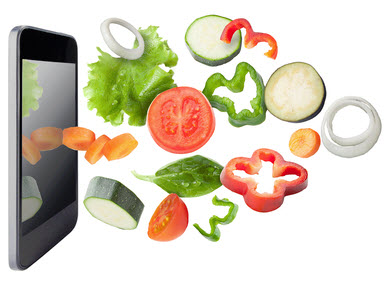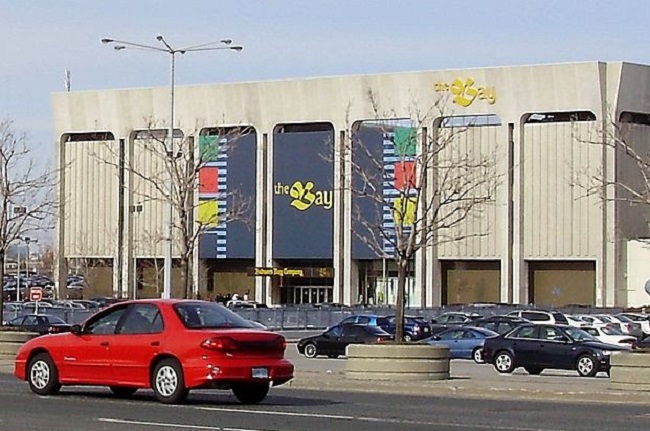An explosion of searches has revealed that people are using their devices to plan their supermarket trips.
According to search volume data that was collected during the second quarter of this year, consumers are looking to mobile technology on a rapidly increasing basis as they prepare their grocery shopping lists.
Among the searches that were performed over smartphones and tablets, recipes topped the ten leading grocery terms.
The largest sub-category search terms over mobile technology, according to the BRC-Google Online Retail Monitor were organic and natural foods. When all devices were taken into account, the searches conducted for grocery items rose by 22 percent when compared to the same quarter in 2013. The volume of searches conducted over smartphones greatly outpaced those of tablets. The data showed that there was a rate of growth of 94 percent over smartphones and 28 percent over tablets.
There was a tremendous spike in the number of searches conducted over mobile technology for organic and natural foods.
 The growth rate in this category over smartphones was a tremendous 133 percent within that quarter. Among tablet users, the increase was recorded at 21 percent. Overall, when all devices were taken into account, there was a respectable growth of 23 percent.
The growth rate in this category over smartphones was a tremendous 133 percent within that quarter. Among tablet users, the increase was recorded at 21 percent. Overall, when all devices were taken into account, there was a respectable growth of 23 percent.
It was the barbecue and grill category that brought about the largest search volume growth across all of the various devices, at 40 percent. Thirty seven percent more searches were conducted within the special and restricted diet foods category. Latin American cuisine saw a growth rate of 35 percent, while meat and poultry searches were up 34 percent and beer rose by 32 percent.
When it came to specific locations that used mobile technology the most for grocery related searches, it was London that scored the highest. Peter Fitzgerald, the retail director at Google, said that “the developments grocers have made in the region, for example the increase in delivery options becoming available.” The director general of BRC, Helen Dickinson went on to express that “In a change that will give particular cheer to grocery retailers, customers are increasingly turning to their tablet computers and smartphones for culinary guidance.”
The iconic Canadian department store retailer is testing out a new way to reach its customers via smartphone.
Hudson’s Bay Company is now testing out a new mobile marketing program that is designed to give shoppers who are in the retail store locations to be able to receive messages in real time in order to enhance their overall shopping experience.
The retailer has announced that it is working with Swirl in implementing the technology for this program.
The company will be using geolocation technology at its five largest By and Lord & Taylor store locations in the United States and Canada in order to use this new mobile marketing program. This location based advertising technique will send consumers smartphone alerts when they walk into the participating stores. The use of this tech is a tremendous leap forward for Hudson’s Bay, which has had a noticeably lacking strategy in terms of general e-commerce.
Swirl uses beacons for its mobile marketing technology, to transmit popup messages via smartphones.
The beacons communicate with the smartphones by way of Bluetooth, detecting that the phone has entered into a certain location and then sending out the appropriate location based marketing message or alert.
For instance, a customer in the store who was close to the display for purses may receive a message to inform them about the Michael Kors products that have just been added to the shelves. At the brand’s flagship store in Toronto, Canada, the entire home wares floor has been completely remodeled and shoppers entering the building are encouraged to check it out.
Beacons may also be able to identify people who have never entered the store, offering them a complementary cup of coffee to enhance their overall experience and encourage them to return for another visit.
According to the executive vice president and chief marketing officer for Hudson’s Bay Company, who spoke about this geolocation technology based mobile marketing pilot, “The amount of mobile usage that our customers are engaging in has grown dramatically.” He also added that “As a retailer, if you’re not thinking about the impacts of mobile on your retail marketing, you’re really missing the boat. We saw this trend, we’ve watched the data, and we’ve been looking for ways that we can enhance the store experience through mobile.”
 The growth rate in this category over smartphones was a tremendous 133 percent within that quarter. Among tablet users, the increase was recorded at 21 percent. Overall, when all devices were taken into account, there was a respectable growth of 23 percent.
The growth rate in this category over smartphones was a tremendous 133 percent within that quarter. Among tablet users, the increase was recorded at 21 percent. Overall, when all devices were taken into account, there was a respectable growth of 23 percent.

